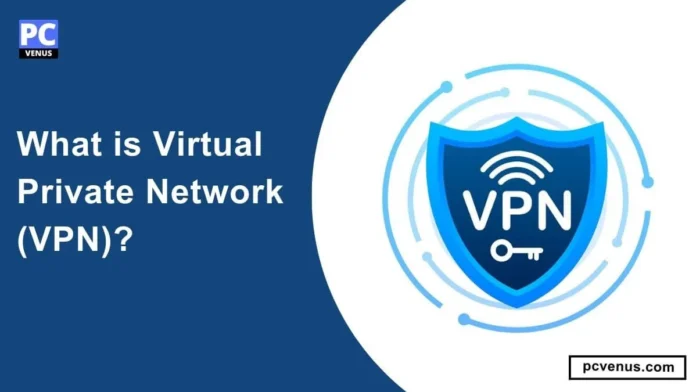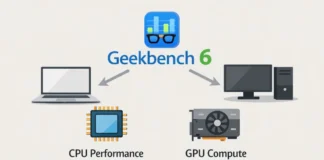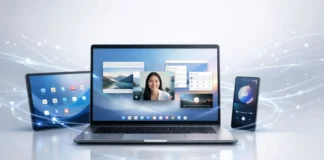In the fast-changing online world, keeping yourself safe on the internet is really important, and This is where VPNs (Virtual Private Networks) come in.
These are like special shields for your online things.
This article explains VPNs, their work, and their usefulness. Whether you’re super into tech or just starting online, knowing about VPNs can make your online time better and safer.
Table of Contents
What is a VPN?
A VPN, or Virtual Private Network, is a powerful tool that establishes a secure and encrypted connection between your device and the internet.
It acts as a tunnel, encrypting and routing your data through a server in a different geographical location. This process masks your IP address, making your online actions virtually untraceable. Think of it like wearing an invisible cloak for your online self.
Also Read: What to Look for in a Graphics Card?
Types of VPNs
1. Personal VPNs
You think you’re cruising the web and want your online actions kept private. That’s where a Personal VPN steps in – a concealed path for your online journeys.
This covert tunnel masks your online activities, like wearing an unseen cloak. Your regular online “address” gets hidden, making it tough for websites to track you. This secures your privacy and thwarts prying eyes.
Moreover, this tunnel ensures your data remains locked up, even on public Wi-Fi. Remember times when content was blocked for your location? With a Personal VPN, you can sometimes trick websites into thinking you’re elsewhere, unlocking restricted content.
Working from home?
It acts as a secure bridge to your office files. Note that a Personal VPN may slightly slow your internet because of the added security. Choosing a trustworthy VPN service is paramount for safety, giving you peace of mind as you explore the digital realm.
2. Business VPNs
A Business VPN is like a safe and private internet connection companies use. It helps businesses keep their information secret when sending it online. This is important for things like secret company plans, customer info, and important money.
The Unique Features of Business VPN and Why People Use It
Safety Lock: It locks up the information in a secret code so that only the right people can understand it. Immoral guys won’t be able to creep in and see what’s going on.
1. For Working from Far Away: This type helps employees safely work from home or a coffee shop connected to the company’s computer network.
2. For Many Offices: If a company has offices in different places, this VPN makes them feel right next door. They can talk like friends even if they’re far away.
3. Secret Rules: Some businesses must follow special rules to keep information safe, and the Business VPN helps them do that. It’s like having a superhero that keeps things in order.
4. No Sneaky Attacks: The VPN makes it super hard for bad people to sneak in and steal information or mess things up. It’s like a shield that protects the company from online trouble.
5. Teamwork and Work: Even if team members are far away from each other, the VPN helps them work together and share, so the company keeps running smoothly.
3. Public VPNs
Public VPNs, also known as commercial or shared VPNs, are virtual private network services provided by third-party companies for public use.
These VPN services allow individuals and businesses to route their internet traffic through their servers, enhancing privacy security and often allowing users to access the internet as if they were in a different geographical location.
The Unique Features of Business VPN and Why People Use It
- Privacy and Anonymity:
Suppose you’re sending a letter, and you put it in a locked box before sending it. Public VPNs also put your online activities in a locked box, so people can’t easily see what you’re doing. They also hide your online address, so it’s harder for others to know who you are.
- Safety:
Hackers might try to sneak into your online stuff when you’re using their Wi-Fi at a coffee shop.
Public VPNs make it much harder for those bad guys to see what you’re doing and steal your information.
- Watching Anywhere:
Sometimes, websites only work in certain places, like a movie only shown in one city.
Public VPNs can make it seem like you’re in that city, so you can watch the movie or use the website even if you’re not there.
- Using Work:
If you have a job that lets you work from home, a public VPN can help you securely connect to your work computer system, just like sitting at your desk.
Also Read: SSD vs HDD: What’s the Difference?
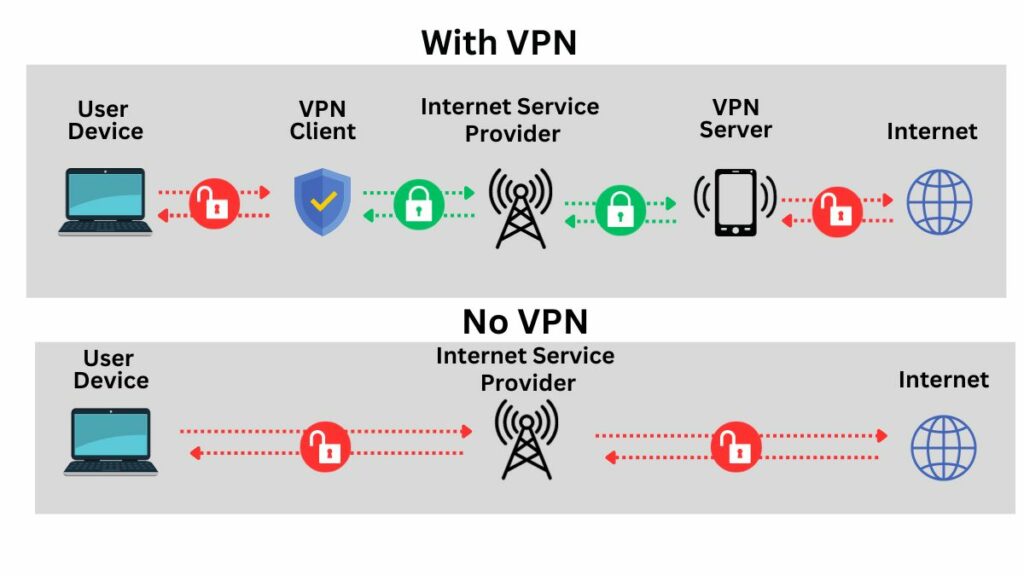
How does a VPN work?
A VPN works by creating a secure and encrypted connection between your device and the VPN server.
Steps of VPN Working
Step 1: Data Encryption: When you connect to a VPN server, your data is encrypted to prevent unauthorized access.
Step 2: Tunneling: Encrypted data is routed through a secure tunnel to the VPN server. This prevents ISPs and hackers from intercepting your information.
Step 3: Masked IP Address: The VPN server assigns you a new IP address, masking your actual location and making it appear like you’re browsing from the server’s location.
Step 4: Accessing the Web: From the VPN server, your encrypted data is decrypted and sent to its intended destination, whether a website, streaming service, or any online platform.
Advantages of VPN
1. Enhanced Online Security
With cyber threats becoming more sophisticated, traditional online security methods are often inadequate. Here’s where VPNs shine.
VPNs encrypt your data, and routing it through secure servers protects your sensitive information from prying eyes. This is particularly crucial when using public Wi-Fi networks, where hackers often lurk.
2. Preservation of Privacy
In the digital age, privacy is a luxury, and Internet service providers (ISPs), advertisers, and even governments can track your online activities.
VPNs offer a shield of anonymity, ensuring your browsing habits remain private. Your true IP address is masked, and your internet traffic appears to originate from the VPN server, adding an extra layer of confidentiality.
3. Bypassing Geographical Restrictions
Have you ever encountered the frustrating message-
“This content is not available in your region“?
VPNs allow you to bypass these restrictions by connecting to a server in a different country. This grants you access to geo-restricted content, streaming services, and websites, opening up a world of digital possibilities.
4. Safe Remote Access
For businesses and remote workers, VPNs provide a secure channel for accessing corporate networks from anywhere.
This eliminates the risks of connecting to sensitive company data through unsecured networks, ensuring confidential information remains protected.
5. Avoid Bandwidth Throttling:
Some ISPs throttle your internet speed for certain activities. VPNs can help bypass this restriction for smoother browsing and streaming.
6. Online Freedom:
VPNs enable free expression by allowing users to access websites and information that might be censored or restricted in their location.
7. Reduced Online Tracking:
VPNs help reduce the ability of advertisers and websites to track your online behavior and show you targeted ads.
8. Secure Transactions:
VPNs add an extra layer of security when conducting online transactions or banking, safeguarding your sensitive information from potential breaches.
9. Anonymity:
VPNs provide a level of anonymity by masking your real IP address and replacing it with the IP address of the VPN server.
10. Safe Public Wi-Fi:
VPNs shield your data from potential eavesdropping and cyberattacks when connected to public Wi-Fi networks.
Disadvantages of VPN
- Slower Internet: Using a VPN might slow down your internet, affecting tasks like smooth video watching.
- Tricky Setup: Setting up a VPN can be confusing, especially if you’re not tech-savvy. The process varies for different devices.
- Varied Trustworthiness: Not all VPNs are safe; some free ones might compromise your privacy by monitoring your online activities.
- Costs Money: Good VPNs may require monthly payments, while free ones might not provide the same level of security.
- Compatibility Issues: Some websites or apps might not work well with a VPN due to compatibility problems or location spoofing.
- Limited Server Locations: Free VPNs might offer fewer server locations, limiting access to content from around the world.
- Connection Drops: VPNs can sometimes disconnect unexpectedly, which could be a concern if unnoticed.
- Service Restrictions: Some services may not work properly with a VPN, restricting access to certain content.
- Misuse Potential: VPNs can be misused for hacking or other malicious activities.
- Battery Drain: On mobile devices, using a VPN might drain your battery faster.
- Legal and Policy Issues: Sometimes, using a VPN could lead to legal trouble or violate website rules.
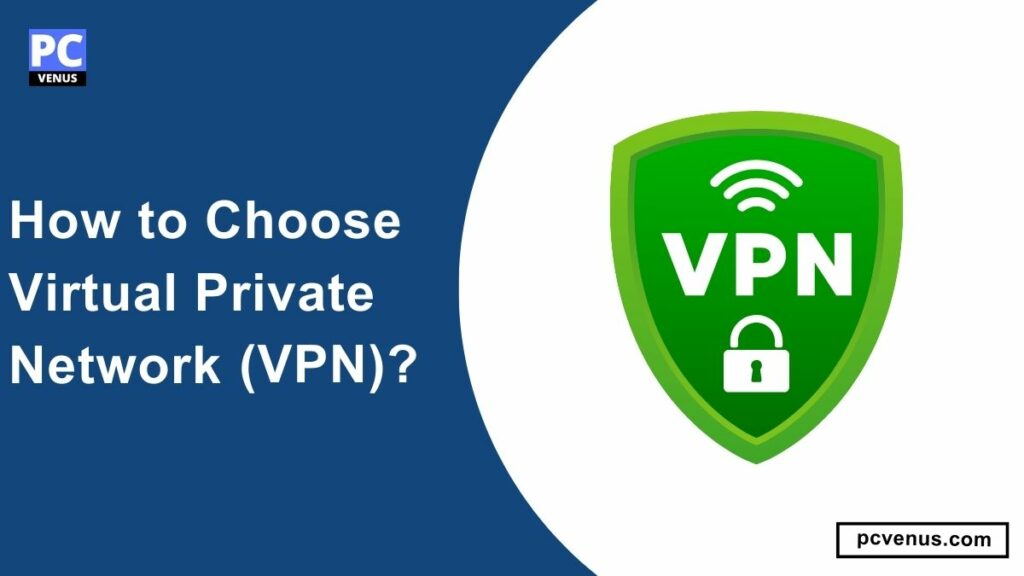
How to Choose a VPN?
Choosing a VPN is like selecting a protection for your online activities. Suppose you’re picking a trustworthy helper. Take your time, check out different VPNs, ask questions, and choose the one that suits you best.
Easy to Use: The VPN should be like an easy-to-understand map, not a confusing puzzle.
Factors to Consider
Price/Plan
Decide how much money you’re okay with spending on a VPN. Sometimes spending a little extra can get you better things.
Features
See what the VPN can do. Does it have what you want, like hiding where you are or letting you use websites from far away?
Security
A good VPN is like a strong lock for your internet. Check if it keeps your info safe with special codes.
Server Locations
If you want to watch shows from different places, ensure the VPN has spots in those countries.
Brand
Sometimes, big names are trustworthy. If the VPN comes from a company you know, it’s probably safer.
Speed
Slow internet is annoying. Look for a VPN that doesn’t make things sluggish.
Compatibility
Make sure the VPN gets along with your devices. It should work on your phone, computer, or anything else.
Logging Policy
A good VPN should be like a secret keeper, not writing down what you do online. Check if they promise not to keep track of your actions.
Also Read: What is Cross Platform in Gaming?
Best VPN Providers
| VPN Service | Features | Pricing | Customer Reviews |
|---|---|---|---|
| 1. NordVPN | Excellent security, large server network, fast speeds, dedicated IP options, ad-blocker, multi-platform support | Starting from $3.71/month | Positive overall, praised for its reliable performance and strong security features |
| 2. TorGuard VPN | Highly customizable with advanced settings, good for torrenting, multiple protocols support, dedicated IP options | Starting from $9.99/month | Mixed reviews, some users appreciate the customization options, while others mention occasional connection issues |
| 3. TunnelBear | User-friendly interface, good for beginners, strong encryption, limited free plan available | Starting from $3.33/month | Generally positive, highlighted for its ease of use and cute interface, but some users mentioned slower speeds |
| 4. PIA | Customizable security settings, no-logs policy, ad-blocker, malware protection, multiple protocols support | Starting from $2.69/month | Generally positive, praised for its privacy features and reliable performance |
| 5. ProtonVPN | Secure and privacy-focused, good for Tor integration, strong encryption, no-logs policy, multi-platform support | Starting from $4/month | Positive overall, appreciated for its strong security measures and commitment to privacy |
| 6. hide.me | Emphasis on Wi-Fi security, strong encryption, no-logs policy, multiple protocol support | Starting from $4.99/month | Generally positive, mentioned for its focus on security and user-friendly interface |
| 7. Surfshark | Unlimited simultaneous connections, strong security, good for streaming, multi-platform support | Starting from $4.99/month | Positive overall, praised for its unlimited connections feature and reliable performance |
| 8. Hotspot Shield | Military-grade encryption, Secure and private browsing, Access to global servers, Unlimited bandwidth and data | Free Premium plans start at $7.99/mo, Family plan is available | Excellent performance, Reliable connection, Easy to use |
| 9. Windscribe | Strong encryption protocols, Ad and malware blocking, Multiple server locations, R.O.B.E.R.T. feature for advanced customization | Free Pro plan starting at $4.08/mo, Build-a-Plan option available | Great value for money, Secure and reliable, Good customer support |
| 10. IPVanish | Zero traffic logs, Unlimited simultaneous connections, Anonymous torrenting and P2P support, Advanced security features | Monthly plan for $10.00/mo, Annual plan for $77.99/yr, 30-day money-back guarantee | Fast and stable, User-friendly, Strong encryption |
FAQs
Is using a VPN legal?
Yes, using a VPN is usually legal in most places. Just remember to use it for lawful things and follow the rules of the websites you visit.
Can I use a VPN for streaming and accessing blocked content?
Yes, you can use a VPN to stream shows and access content that might be blocked in your area.
Is using a VPN safe?
Yes, using a VPN can be safe. It adds an extra layer of protection to your online activities by encrypting your connection, making it harder for others to see what you’re doing. But remember, not all VPNs are equally safe, so choose a trusted one.
Can a VPN make me completely anonymous online?
No, a VPN can’t make you completely anonymous online, but it can help increase your privacy by hiding your actual IP address and encrypting your internet connection.
Can a VPN hide my online activities from my ISP?
A VPN can hide online activities from your internet provider (ISP).
Do free VPNs provide the same level of security as paid ones?
Actually, free VPNs usually offer a different level of security than paid ones.
Can I use a VPN on my mobile devices?
You can use a VPN on mobile devices like phones and tablets.
